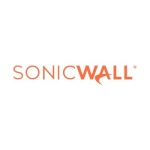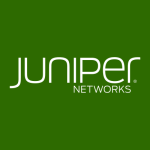What is our primary use case?
Our most common use cases are for our corporate firewalls, and currently, I'm using it as our school firewall. So it's our perimeter firewall. So, we're running three firewalls on our network.
So we have separate networks each because we have, like, different use cases. So we're running three at the moment.
We've been running it for six years now, and so far, it's been good.
How has it helped my organization?
Netgate pfSense has been utilized to create and manage VPNs within our organization. So we're running pfSense with VPN on one of our private cloud providers. So we're using IPSec VPN on that.
For everyday tasks, we just get alerts. It's anything that's suspicious, including from our Netgate. So, it's part of how we maintain cybersecurity in our school. This is working alongside our endpoint security solution.
We were using an open-source endpoint solution for that. So we're integrating that with the one we have on pfSense.
What is most valuable?
The ease of use. Like, it's easy to manage the firewall, rule-wise and interface-wise. For me, it's quite easy and friendly to use.
We have a set of rules so that it can manage all of our rules. We have a complex network here in our school. We have a lot of rules running, so it's really easy to match all of those rules using pfSense.
Integrating pfSense with other products was a bit tedious at first. We researched and tested for about a month, so it was not too hard but not instant.
What needs improvement?
For the third-party packages, I'd rather have it built-in, like a core feature of pfSense, part of the core model. This feature of pfSense would be great, instead of relying on a third-party module.
For how long have I used the solution?
I have been using it for six years.
What do I think about the stability of the solution?
It's about 95% stable, not perfect, but quite reliable.
What do I think about the scalability of the solution?
If I needed to scale it and merge our pfSense machines into one, I'd prefer a dedicated hardware appliance instead of running multiple x86 servers on the firewall.
We have around 4,000 endpoints.
How are customer service and support?
I reached out to support for an unusual CPU usage issue after an upgrade. They were responsive, and even though I ultimately found a solution, they were helpful in diagnosing.
How would you rate customer service and support?
Which solution did I use previously and why did I switch?
We used Fortinet. We opted for pfSense because of budget limitations. pfSense was a more affordable solution for our requirements.
pfSense is easier to manage and offers modularity for features. With FortiGate, everything is there, but we might not need everything, and too many features can be challenging.
How was the initial setup?
The initial setup is very straightforward and intuitive.
We use the pfSense software directly and install it on our rack servers. So, we're adding three instances of that.
What about the implementation team?
I handle all the deployment processes. I am the core manager for the entire infrastructure, so I manage and deploy everything.
I consider how many users and gigabytes we expect on the network and try it on a test network first to validate before actual deployment.
Just my core team members manage the whole deployment, so that's enough for us.
Migrating the old one to the new one took around a month because we have many rules, and the new Netgate was quite different.
From the maintenance perspective, it is not difficult at all.
While configuring or maintaining pfSense, we had high CPU usage on one firewall, but the GPAC subscription provided a good response. The support team was helpful, and we resolved it in a few hours. So, we had good support because of the support subscription.
What's my experience with pricing, setup cost, and licensing?
We just have the yearly support subscription.
Which other solutions did I evaluate?
I just found pfSense online. I just tried it out on a home lab and found it worked well enough for us. So, just started out, like, searching online and responded and tried it.
What other advice do I have?
I would advise you to try to estimate your network first and do a test network just to have a proof of concept of what you want to run and check the routes you want to run against your network, making sure that your requirements are valid before deploying it.
Overall, I would rate the solution a nine out of ten.
Which deployment model are you using for this solution?
On-premises
Disclosure: My company does not have a business relationship with this vendor other than being a customer.

















